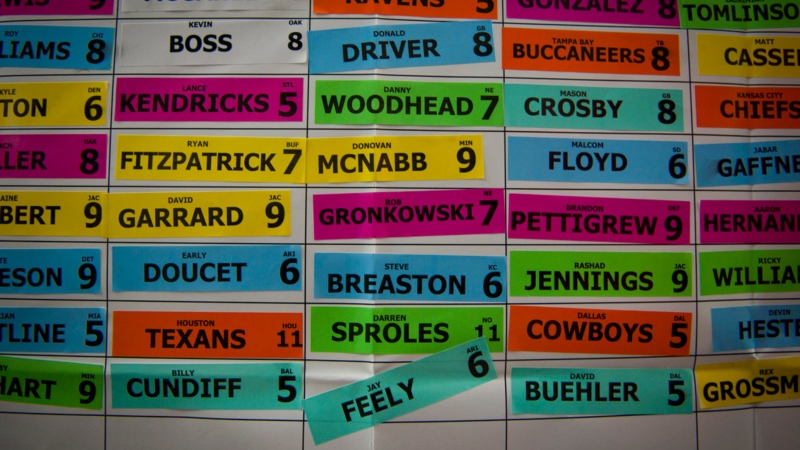When Names Cross the Line The Social Impact of Inappropriate Names
Introduction
Names are powerful identifiers that shape personal identity, cultural belonging, and social perception. However, when names cross the line into inappropriate territory, they can create discomfort, controversy, and unintended harm. An inappropriate name may be offensive due to vulgarity, cultural insensitivity, or explicit meanings. In today’s interconnected society, where names appear in resumes, social media profiles, and product labels, choosing a name that is socially acceptable is more important than ever.
The use of inappropriate names is not limited to individuals. Businesses, products, and online personas have all faced backlash for names that were considered offensive or insensitive. From celebrity baby names to gamer tags and even geographic locations, the cultural significance of names extends far beyond the person or entity they represent. With growing awareness of issues related to diversity and inclusion, society is increasingly holding individuals and brands accountable for their naming choices.
This article explores what constitutes an inappropriate name, provides historical and cultural context, examines the consequences of such naming, and offers guidance on responsible naming practices. Understanding the impact of inappropriate names is essential for fostering a respectful and inclusive society.
Defining Inappropriate Names
An inappropriate name is one that causes offense, discomfort, or harm due to its content, implications, or associations. These names may contain vulgar language, sexual innuendos, racial slurs, or derogatory references to cultural or religious identities. What qualifies as inappropriate can be subjective, but a general rule of thumb is whether a name violates societal norms or causes others to feel disrespected or marginalized.
For instance, a name that includes curse words or explicit content is universally recognized as inappropriate. However, names that reference stereotypes or have double meanings might not be immediately obvious but can still be damaging. Names like “Ben Dover” or “Anita Bath” may seem humorous to some but can cause embarrassment or offense in professional or educational settings.
Cultural context also plays a significant role. A name that is considered humorous or harmless in one culture may be offensive in another. For example, a brand name that sounds like an insult in another language can lead to unintended backlash in international markets. The evolution of language adds further complexity, as terms that were once acceptable may become inappropriate over time due to shifting social norms and greater cultural sensitivity.
In short, defining an inappropriate name requires awareness, empathy, and consideration of diverse perspectives. As communication becomes more globalized, it is crucial to evaluate names for their broader impact across cultures and communities.
Historical and Cultural Examples
Throughout history, many names that were once common have become controversial or outdated due to evolving social standards. Geographic locations such as “Squaw Valley” or brand names like “Aunt Jemima” have been criticized for their racial connotations and have undergone rebranding to reflect more respectful terminology. These examples illustrate how names are not static—they carry cultural baggage that can shape public opinion and identity.
In popular culture, celebrities often make headlines for giving their children unique or controversial names. While some names are simply unconventional, others may cross into inappropriate territory. For example, the musician Frank Zappa famously named his children Moon Unit and Dweezil, sparking debate over the boundaries of creative freedom and societal norms in naming. While not inherently offensive, such names often attract scrutiny for their perceived eccentricity or impracticality.
Ethnic slurs and colonial-era terminology have also made their way into product and place names, often without malice but with significant consequences. As society grows more conscious of historical injustices, there has been a collective movement to rename schools, mascots, and streets that bear offensive names. This cultural reckoning reflects a broader effort to honor dignity and inclusivity in public discourse.
These historical and cultural examples show that names carry weight and can either perpetuate harmful narratives or promote progress. Recognizing this impact is a critical step toward fostering a more respectful and equitable society.
The Consequences of Using Inappropriate Names
Choosing or using an inappropriate name can have serious social, professional, and legal consequences. In social settings, individuals with names that sound offensive or are easily mocked may experience bullying, exclusion, or ridicule. This can lead to long-term psychological effects, including anxiety, shame, or diminished self-esteem. A name that triggers laughter in a classroom or discomfort in a workplace can significantly affect a person’s sense of identity and belonging.
In the professional realm, names carry first impressions. An applicant with a name perceived as offensive or unprofessional may be passed over by hiring managers, regardless of qualifications. Similarly, businesses and brands with controversial names risk alienating customers, facing public backlash, or even being boycotted. In today’s cancel culture climate, a name deemed inappropriate can lead to widespread reputational damage and financial loss.
Legal ramifications also exist. Some countries have naming laws that prohibit the use of offensive or misleading names on birth certificates or official documents. Parents who choose names that are deemed harmful or inappropriate may be required by law to select an alternative. Additionally, online platforms often ban or censor usernames that violate community guidelines, leading to account suspensions or permanent bans.
Ultimately, the impact of using an inappropriate name extends far beyond the initial choice. It affects personal development, social dynamics, and professional opportunities. Taking the time to choose names with care and cultural awareness is not just considerate—it’s essential in today’s interconnected world.
Inappropriate Names in Modern Media and Gaming
Names

The digital era has amplified the visibility and consequences of inappropriate names, particularly in online gaming, social media, and streaming platforms. Usernames and character names that contain explicit language, slurs, or suggestive puns often violate community standards and can result in account bans or restricted access. Platforms like Twitch, Xbox Live, and Discord employ moderation tools and automated filters to detect and remove offensive content.
Gaming culture, in particular, has been criticized for fostering environments where inappropriate names are used for shock value or humor. While some users adopt these names to stand out or provoke reactions, they contribute to toxic behavior and exclusionary spaces. A gamer with an offensive username may be reported by peers, leading to disciplinary action or a ban. These rules are put in place to create inclusive, respectful communities for players of all ages and backgrounds.
Social media platforms such as Twitter and Instagram also face challenges with inappropriate usernames and handles. While policies are in place to prevent hate speech and offensive language, enforcement is often inconsistent. However, users with offensive names can quickly become the subject of public scrutiny and viral backlash, especially when tied to controversial posts or behaviors.
The prevalence of inappropriate names in modern media underscores the importance of digital responsibility. As our online identities become extensions of ourselves, selecting respectful and appropriate names is key to maintaining a positive personal brand and contributing to healthier online communities.
Naming Etiquette and Responsible Naming Practices
Responsible naming begins with empathy, education, and cultural sensitivity. Whether naming a child, a product, or an online profile, it is important to consider how that name will be perceived by others. Consulting naming databases, researching meanings in different languages, and avoiding offensive slang or references are essential steps in the process.
Parents should aim for names that support their child’s identity and future success. Names that are overly whimsical, difficult to pronounce, or have negative connotations can become burdens later in life. Meanwhile, businesses and content creators must prioritize professionalism and inclusivity in branding decisions. A name that might seem edgy or attention-grabbing could backfire if it alienates audiences or draws unwanted controversy.
Resources such as baby name guides, cultural sensitivity checklists, and community feedback can help vet names before they are finalized. Additionally, some platforms offer tools to test names for problematic connotations, particularly in cross-cultural contexts. These preventive measures can reduce the likelihood of offending others or facing backlash.
If someone already has an inappropriate name, options like legal name changes or rebranding are available. Owning up to past mistakes and taking corrective action demonstrates accountability and respect. In a world that increasingly values inclusion and empathy, responsible naming practices are a reflection of our shared social values.
Conclusion
Inappropriate names are more than just poor choices—they can have lasting effects on individuals, communities, and brands. From causing social harm to triggering public outrage, these names reveal how deeply language influences our interactions and identities. As societal awareness around diversity and inclusion grows, so does the responsibility to choose names with care and respect.
Whether naming a child, a business, or an online profile, it’s essential to consider the broader implications. Names should empower, not marginalize. They should invite respect, not ridicule. By prioritizing empathy, cultural awareness, and social consciousness, we can ensure that our names reflect the values we strive to uphold.
Choosing names responsibly isn’t just a matter of etiquette—it’s a reflection of our commitment to creating a more respectful and inclusive world.
FAQs
Q1: What are some examples of inappropriate names that were changed?
Aunt Jemima (rebranded as Pearl Milling Company) and Squaw Valley (renamed Palisades Tahoe) are two notable examples of names changed due to cultural insensitivity.
Q2: Can someone legally change an inappropriate name?
Yes, most jurisdictions allow individuals to legally change their names if the original name is deemed offensive or causes hardship.
Q3: Are there laws against using offensive names?
Some countries and regions have laws prohibiting names that are offensive, misleading, or harmful, especially for birth registrations.
Q4: Why do some people deliberately choose inappropriate names?
Some individuals choose inappropriate names for humor, shock value, or rebellion, often without considering the broader consequences.
Q5: How do online platforms detect and ban inappropriate names?
Platforms use moderation tools, AI filters, and community reports to flag and remove offensive names or usernames.
Q6: Is it ever okay to reclaim a name previously considered inappropriate?
In some cases, marginalized groups reclaim offensive terms as acts of empowerment, but this is context-specific and should be approached with caution.
Q7: What should I do if my name is unintentionally offensive in another culture?
Consider the context and consult with people from that culture. If necessary, adopt a nickname or alternate name in sensitive settings.







Post Comment